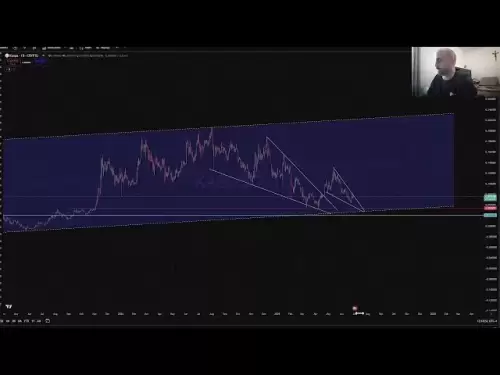-
 Bitcoin
Bitcoin $107,352.1067
0.28% -
 Ethereum
Ethereum $2,429.3531
-0.90% -
 Tether USDt
Tether USDt $1.0001
-0.02% -
 XRP
XRP $2.1894
4.62% -
 BNB
BNB $646.7968
0.36% -
 Solana
Solana $147.4290
4.03% -
 USDC
USDC $0.9998
-0.02% -
 TRON
TRON $0.2756
1.52% -
 Dogecoin
Dogecoin $0.1630
1.14% -
 Cardano
Cardano $0.5612
1.18% -
 Hyperliquid
Hyperliquid $37.0580
-0.05% -
 Bitcoin Cash
Bitcoin Cash $496.9410
-0.09% -
 Sui
Sui $2.7318
3.19% -
 Chainlink
Chainlink $13.1503
0.58% -
 UNUS SED LEO
UNUS SED LEO $9.0766
0.55% -
 Avalanche
Avalanche $17.7220
1.46% -
 Stellar
Stellar $0.2380
1.52% -
 Toncoin
Toncoin $2.8439
0.38% -
 Shiba Inu
Shiba Inu $0.0...01143
1.84% -
 Litecoin
Litecoin $85.8053
1.47% -
 Hedera
Hedera $0.1483
2.70% -
 Monero
Monero $314.3240
2.12% -
 Bitget Token
Bitget Token $4.6725
0.77% -
 Dai
Dai $1.0000
0.00% -
 Polkadot
Polkadot $3.3555
1.28% -
 Ethena USDe
Ethena USDe $1.0001
0.02% -
 Uniswap
Uniswap $7.0890
2.64% -
 Pi
Pi $0.5355
-3.40% -
 Pepe
Pepe $0.0...09393
1.06% -
 Aave
Aave $256.8136
-1.90%
How to understand the decentralized characteristics of cryptocurrencies?
Cryptocurrencies' decentralized nature, enabled by blockchain technology, distributes ledger information across many computers, enhancing security and censorship resistance. However, challenges like mining pool centralization and large holder influence threaten this ideal.
Mar 11, 2025 at 07:23 am

Key Points:
- Decentralization in cryptocurrencies means no single entity controls the network. This contrasts sharply with centralized systems like banks.
- Blockchain technology underpins this decentralization, distributing ledger information across many computers.
- Decentralization impacts security, censorship resistance, and transparency within the cryptocurrency ecosystem.
- Understanding consensus mechanisms like Proof-of-Work (PoW) and Proof-of-Stake (PoS) is crucial to grasping how decentralization functions.
- Challenges to true decentralization include mining centralization and the influence of large holders.
How to Understand the Decentralized Characteristics of Cryptocurrencies?
Cryptocurrencies are often lauded for their decentralized nature. But what does this truly mean, and how does it work in practice? Decentralization, in the context of cryptocurrencies, signifies a system where no single entity, individual, or organization controls the network. This stands in stark contrast to centralized systems like traditional banking, where a central authority manages all transactions and data.
The cornerstone of cryptocurrency decentralization is blockchain technology. Instead of a single database holding all transaction records, a blockchain distributes this information across a vast network of computers (nodes). Each node maintains a copy of the blockchain, ensuring redundancy and resilience against single points of failure.
This distributed ledger system has profound implications. First, it enhances security. Attacking a decentralized network requires compromising a significant portion of the nodes, a computationally and logistically daunting task. Secondly, it offers censorship resistance. No single entity can block or alter transactions, protecting users from arbitrary control.
Transparency is another key benefit. All transactions are publicly recorded on the blockchain, though user identities might be pseudonymous. This open record allows for auditability and increased trust, although privacy concerns remain a valid consideration.
To understand how this decentralized consensus is reached, we need to delve into consensus mechanisms. The two most prominent are Proof-of-Work (PoW) and Proof-of-Stake (PoS).
PoW, famously used by Bitcoin, requires miners to solve complex computational puzzles to validate transactions and add new blocks to the blockchain. The first miner to solve the puzzle gets to add the block and receives a reward. This process is energy-intensive but secures the network through its computational difficulty.
PoS, on the other hand, is a more energy-efficient approach. In PoS systems, validators are selected based on the amount of cryptocurrency they stake. The more cryptocurrency a validator stakes, the higher their chance of being selected to validate transactions and earn rewards. This method reduces energy consumption but can raise concerns about network centralization if a few large stakeholders control a substantial portion of the staked coins.
However, perfect decentralization is an ideal rarely fully achieved. Several challenges threaten the decentralized nature of cryptocurrencies. Mining centralization, where a small number of powerful mining pools dominate the PoW networks, is a significant concern. This can lead to a concentration of power and influence, undermining the decentralized ethos.
Similarly, the influence of large cryptocurrency holders (whales) can impact the price and overall direction of a cryptocurrency, potentially influencing the market in ways that contradict the spirit of decentralization. Their large holdings can sway market sentiment and manipulate prices, which can undermine the perceived fairness and balance of the decentralized system.
Furthermore, the development and maintenance of the underlying software and protocols are often concentrated in the hands of a relatively small group of developers, potentially creating another point of centralized control. This raises questions about the long-term sustainability and governance of decentralized networks.
Despite these challenges, the pursuit of decentralization remains a central tenet of the cryptocurrency movement. Ongoing research and development aim to address these challenges and enhance the decentralization of existing and future cryptocurrencies. The exploration of new consensus mechanisms, improved governance models, and distributed development efforts are crucial steps in striving for a truly decentralized future for cryptocurrencies.
Frequently Asked Questions:
Q: Is any cryptocurrency truly decentralized?
A: While many cryptocurrencies aim for decentralization, achieving perfect decentralization is challenging. Factors like mining pools, large holders, and centralized development teams can compromise the ideal. The degree of decentralization varies significantly across different cryptocurrencies.
Q: What are the benefits of cryptocurrency decentralization?
A: Decentralization offers enhanced security through distributed ledgers, censorship resistance protecting users from arbitrary control, and increased transparency due to public transaction records.
Q: How does blockchain technology contribute to decentralization?
A: Blockchain distributes the cryptocurrency ledger across numerous computers, preventing single points of failure and making it resistant to attacks or censorship.
Q: What are the main challenges to achieving true decentralization?
A: Challenges include mining pool centralization (in PoW systems), the influence of large cryptocurrency holders ("whales"), and the concentration of development efforts in the hands of a limited number of developers.
Q: What are Proof-of-Work (PoW) and Proof-of-Stake (PoS)?
A: PoW and PoS are consensus mechanisms used to validate transactions and add new blocks to the blockchain. PoW relies on computational power, while PoS relies on staked cryptocurrency. Each has advantages and disadvantages concerning decentralization and energy consumption.
Disclaimer:info@kdj.com
The information provided is not trading advice. kdj.com does not assume any responsibility for any investments made based on the information provided in this article. Cryptocurrencies are highly volatile and it is highly recommended that you invest with caution after thorough research!
If you believe that the content used on this website infringes your copyright, please contact us immediately (info@kdj.com) and we will delete it promptly.
- RUVI Token Soars: Can It Eclipse Cardano's Forecast?
- 2025-06-29 02:30:12
- Meme Coin Mania: Can Little Pepe Outshine Shiba Inu and Dogecoin?
- 2025-06-29 02:30:12
- XRP Tokens: Navigating Financial Status and the Art of Buying In
- 2025-06-29 02:50:12
- Shiba Inu, Trump Coin, and the Crypto Bull Run: What's the Deal?
- 2025-06-29 03:50:12
- Coinbase on the 2025 List of Influential Companies: A Crypto Powerhouse?
- 2025-06-29 04:10:12
- Solana, Shiba Inu, and Pepe Coin: What's Hot and What's Not in the Crypto World
- 2025-06-29 03:55:13
Related knowledge
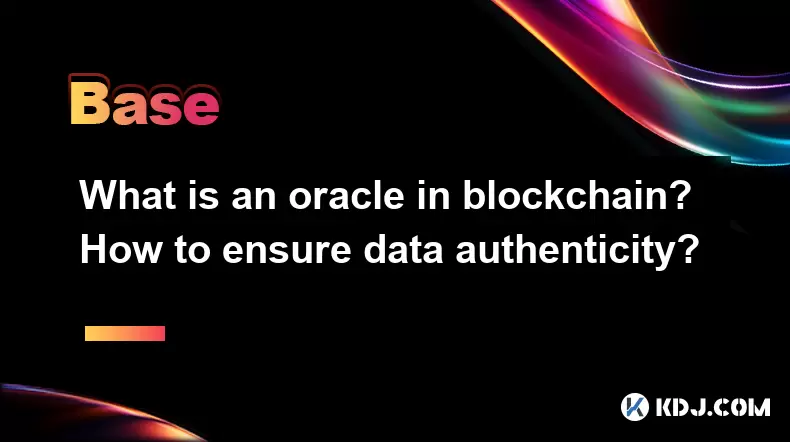
What is an oracle in blockchain? How to ensure data authenticity?
Jun 19,2025 at 08:49pm
Understanding the Role of an Oracle in BlockchainIn the context of blockchain technology, an oracle serves as a bridge between the blockchain and external data sources. While blockchains are inherently secure and decentralized, they cannot access real-world information on their own. Oracles enable smart contracts to interact with off-chain data such as ...
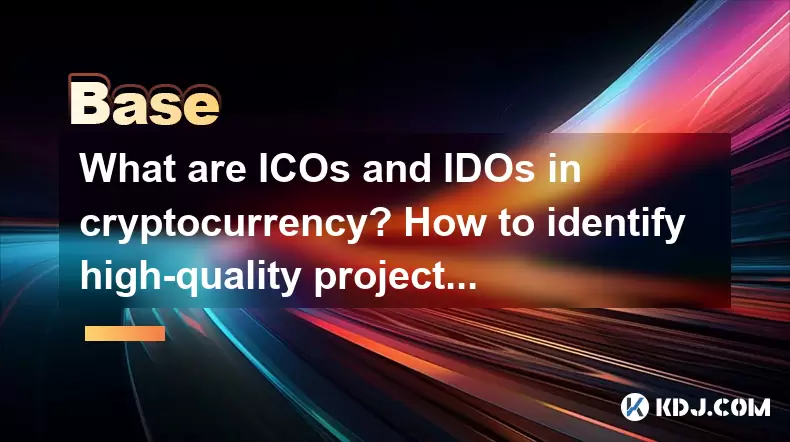
What are ICOs and IDOs in cryptocurrency? How to identify high-quality projects?
Jun 22,2025 at 11:49am
Understanding ICOs in CryptocurrencyInitial Coin Offerings (ICOs) are fundraising mechanisms used by cryptocurrency startups to raise capital for their projects. In an ICO, a company creates and sells its own tokens to investors in exchange for established cryptocurrencies like Bitcoin or Ethereum. The process typically involves the release of a whitepa...
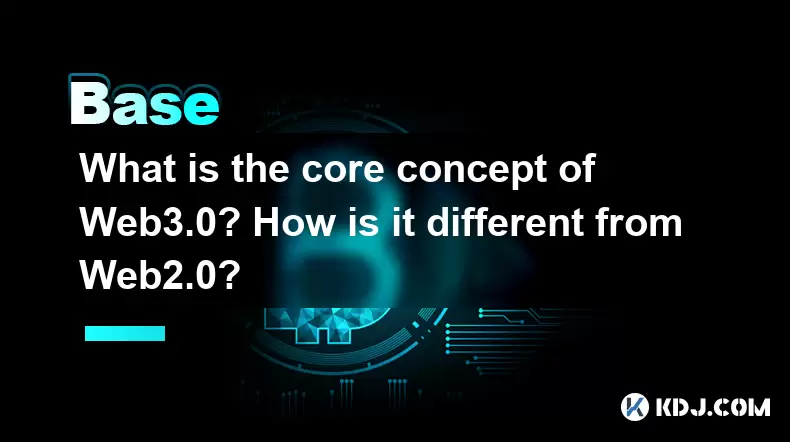
What is the core concept of Web3.0? How is it different from Web2.0?
Jun 21,2025 at 05:56pm
Decentralization as the Foundation of Web3.0The core concept of Web3.0 revolves around decentralization, which fundamentally challenges the centralized architecture of Web2.0. In Web3.0, control and ownership are distributed across a network rather than being held by a central authority or corporation. This is achieved primarily through blockchain techn...
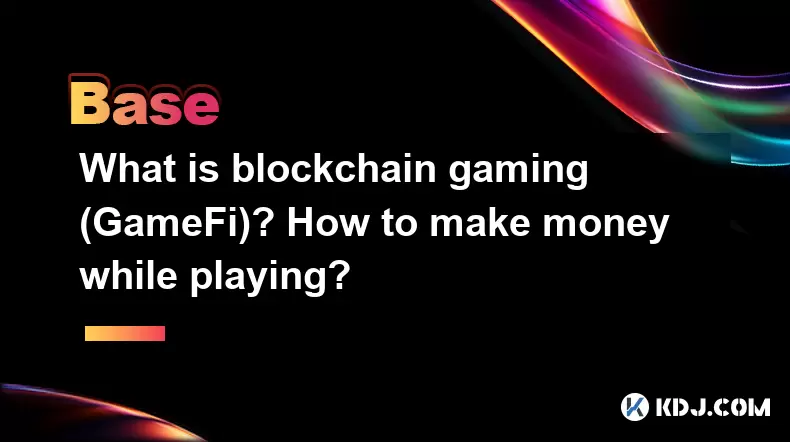
What is blockchain gaming (GameFi)? How to make money while playing?
Jun 20,2025 at 07:56am
Understanding Blockchain Gaming (GameFi)Blockchain gaming, often referred to as GameFi, is a fusion of blockchain technology and video games. It enables players to own in-game assets through non-fungible tokens (NFTs) and earn rewards via cryptocurrencies or token-based systems. Unlike traditional games where items are controlled by centralized develope...
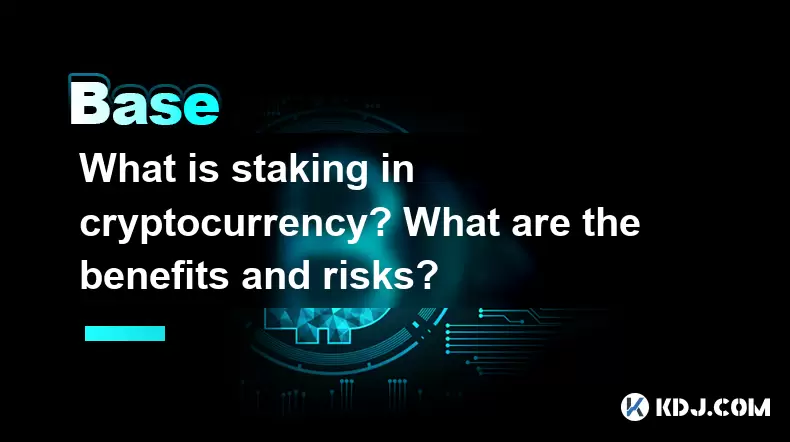
What is staking in cryptocurrency? What are the benefits and risks?
Jun 22,2025 at 10:01am
Understanding the Concept of Staking in CryptocurrencyStaking in cryptocurrency refers to the process of actively participating in transaction validation on a blockchain network that uses a Proof-of-Stake (PoS) consensus mechanism. Instead of miners competing to solve complex mathematical puzzles as in Proof-of-Work systems like Bitcoin, PoS blockchains...
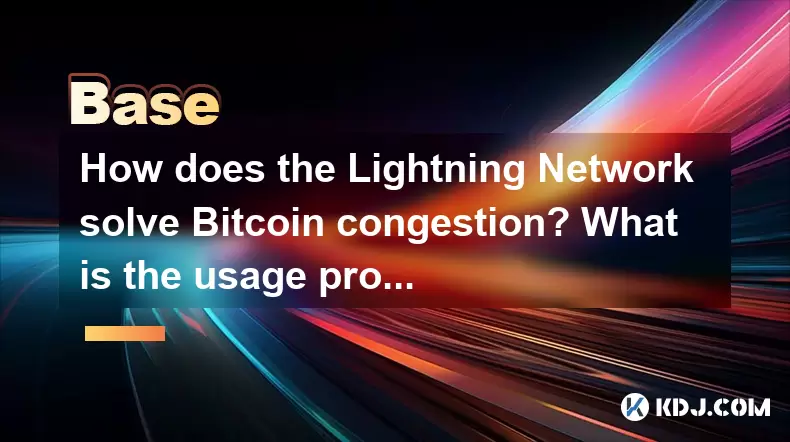
How does the Lightning Network solve Bitcoin congestion? What is the usage process?
Jun 23,2025 at 06:21pm
Understanding Bitcoin Network CongestionBitcoin, as a decentralized digital currency, operates on a blockchain that records every transaction in a public ledger. Each block has a limited size, typically 1 megabyte, which allows for only a certain number of transactions per second (TPS). When the number of transactions increases, the network becomes cong...

What is an oracle in blockchain? How to ensure data authenticity?
Jun 19,2025 at 08:49pm
Understanding the Role of an Oracle in BlockchainIn the context of blockchain technology, an oracle serves as a bridge between the blockchain and external data sources. While blockchains are inherently secure and decentralized, they cannot access real-world information on their own. Oracles enable smart contracts to interact with off-chain data such as ...

What are ICOs and IDOs in cryptocurrency? How to identify high-quality projects?
Jun 22,2025 at 11:49am
Understanding ICOs in CryptocurrencyInitial Coin Offerings (ICOs) are fundraising mechanisms used by cryptocurrency startups to raise capital for their projects. In an ICO, a company creates and sells its own tokens to investors in exchange for established cryptocurrencies like Bitcoin or Ethereum. The process typically involves the release of a whitepa...

What is the core concept of Web3.0? How is it different from Web2.0?
Jun 21,2025 at 05:56pm
Decentralization as the Foundation of Web3.0The core concept of Web3.0 revolves around decentralization, which fundamentally challenges the centralized architecture of Web2.0. In Web3.0, control and ownership are distributed across a network rather than being held by a central authority or corporation. This is achieved primarily through blockchain techn...

What is blockchain gaming (GameFi)? How to make money while playing?
Jun 20,2025 at 07:56am
Understanding Blockchain Gaming (GameFi)Blockchain gaming, often referred to as GameFi, is a fusion of blockchain technology and video games. It enables players to own in-game assets through non-fungible tokens (NFTs) and earn rewards via cryptocurrencies or token-based systems. Unlike traditional games where items are controlled by centralized develope...

What is staking in cryptocurrency? What are the benefits and risks?
Jun 22,2025 at 10:01am
Understanding the Concept of Staking in CryptocurrencyStaking in cryptocurrency refers to the process of actively participating in transaction validation on a blockchain network that uses a Proof-of-Stake (PoS) consensus mechanism. Instead of miners competing to solve complex mathematical puzzles as in Proof-of-Work systems like Bitcoin, PoS blockchains...

How does the Lightning Network solve Bitcoin congestion? What is the usage process?
Jun 23,2025 at 06:21pm
Understanding Bitcoin Network CongestionBitcoin, as a decentralized digital currency, operates on a blockchain that records every transaction in a public ledger. Each block has a limited size, typically 1 megabyte, which allows for only a certain number of transactions per second (TPS). When the number of transactions increases, the network becomes cong...
See all articles























